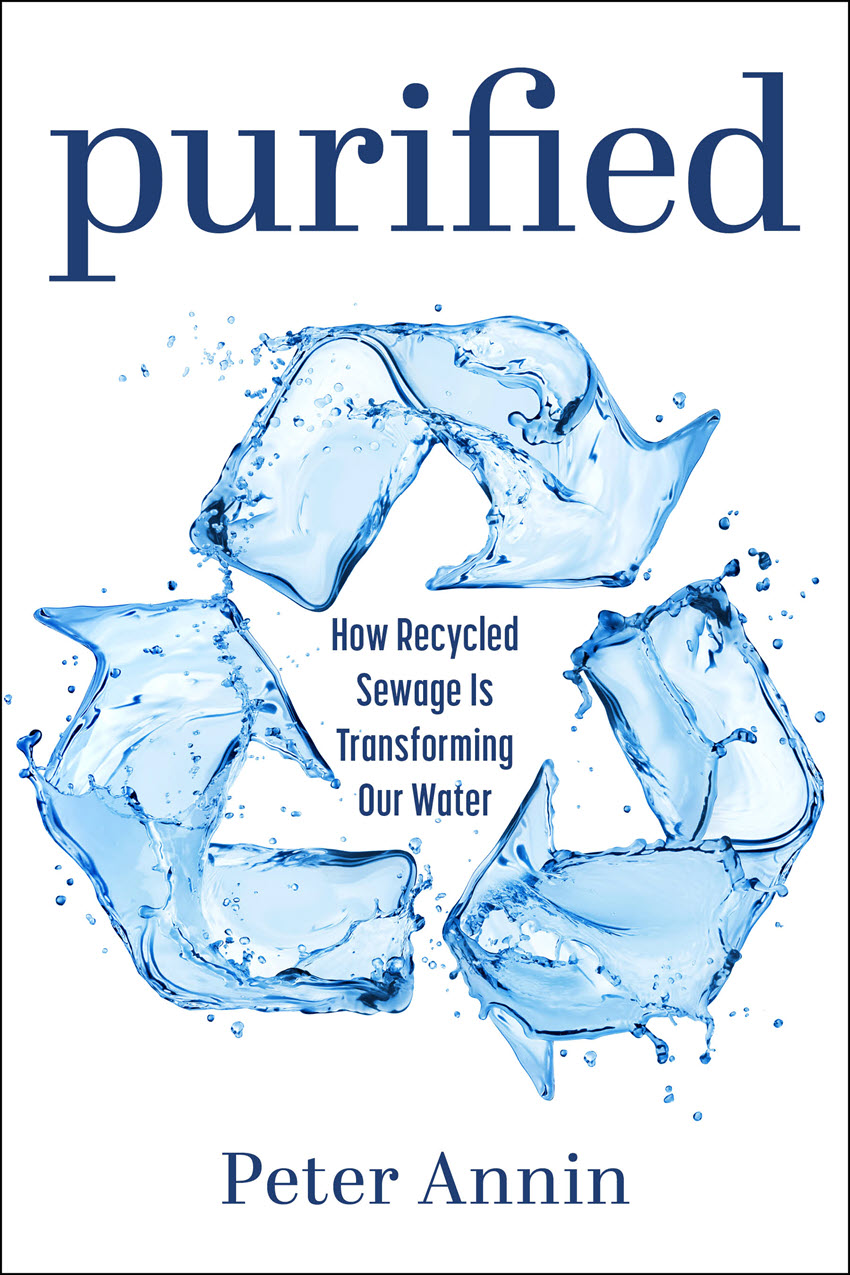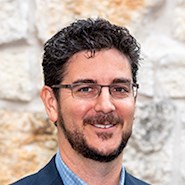By Ray Bert
Purified: How Recycled Sewage Is Transforming Our Water, by Peter Annin. Washington, D.C.: Island Press, 2023; 248 pages, $28.
A recent episode of For All Mankind — the excellent decades-spanning alternate-history streaming show focused on the space race and space travel — continued a long and proud tradition: science fiction that reminds us how incredibly precious water is. In particular, that in some extreme conditions humans need to lean on technology to use the water we have — including our own wastewater — over and over again in order to survive. Those extreme conditions have increasingly begun to arrive in the U.S. — and recycled sewage has already become a key contributor to our freshwater supply.
Purified is authored by longtime investigative journalist Peter Annin, who for the last several decades has specialized in water issues. The book sets out to demystify the process of turning sewage into potable water, which is usually considered to have a significant “yuck” factor.
Happily, however, Annin notes upfront that while acceptance is being partly driven by the increasingly dire need for water, particularly in the American West, he has been surprised and heartened by how “quickly water recycling is spreading around the country” and that “dissent has morphed into acceptance, even enthusiasm.”
In addition to explaining just how far sewage recycling technology has come, Purified also seeks to drive home that simply draining our finite supplies of freshwater from rivers and lakes for our water needs, while expedient, was never going to be sustainable for the long haul. Annin describes the stark example of Lake Mead’s ominous march toward dead pool as one particularly harrowing warning sign among many. Despite improvements in water conservation and the expensive process of desalination, more solutions are needed as populations grow and water needs become more complex.

But again, Purified is not just about making the argument, it’s about explaining how sewage recycling is already a growing part of our toolbox. Annin focuses on five states with serious issues: Arizona, California, Nevada, Texas, and Virginia. Many key lessons are examined, such as San Diego’s ill-fated attempt to embrace water recycling in the late 1990s, which died when hysteria over “toilet to tap” water, as critics pejoratively dubbed it, became a political loser. (San Diego did successfully implement the process years later.)
Orange County, California, had a different experience: It had been incorporating recycled sewage into its drinking water for decades, in a more limited way and with little fanfare or awareness. The county was ready to expand it significantly just as San Diego hit its stumbling block — but it had what Annin calls a public relations advantage: It could note that recycled water had been used safely for decades and that what it was proposing was an even more sophisticated purification system than what was in place.
Over and over through actual examples, Annin shows clearly that while properly engineering, managing, and maintaining the systems is of paramount importance, messaging and education is just as important to ensure the success of projects and public acceptance. Combined with the extra (hard) nudge born of desperation for localities not to run short of water, these approaches have helped push sewage recycling to the forefront of the water crisis.
Purified is packed with the kind of narrative, journalistic detail that keeps you turning the pages. And while it includes technical detail and explanations as well as a fair bit of public policy it is not a difficult read for those without those backgrounds. And that is as it should be; we need the engineers and scientists to create these systems and the policymakers to understand what’s at stake and greenlight such projects, but we also ultimately need the public to get past any “yuck” factor and embrace sewage recycling for the good — perhaps even for the survival — of our communities.
This article is published by Civil Engineering Online.



